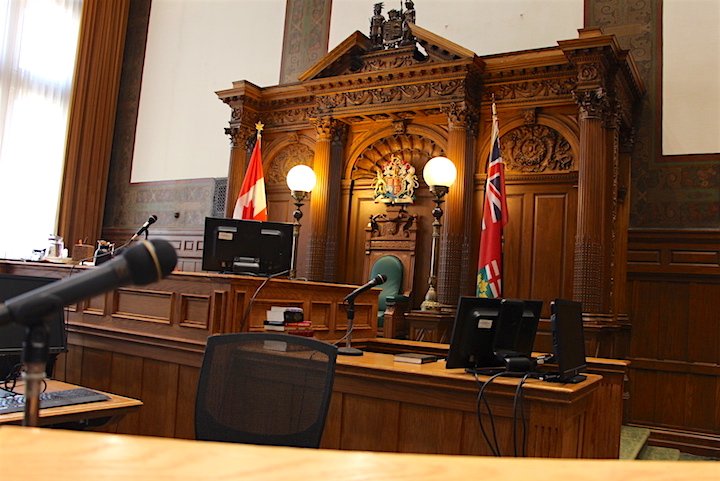TORONTO – A woman embroiled in a lengthy dispute with her former school board and teachers’ union has no right to video-record her Appeal Court proceedings or to force a judge to publicly post a decision, Ontario’s top court ruled on Wednesday.

While judges do have authority to allow video or audio recordings of proceedings under certain circumstances – such as in disputes with wide public significance – the court said Myriam Michail had not persuaded them this was one of those circumstances.
“An idiosyncratic and unsubstantiated distrust in the legal system does not generate an entitlement to create a video record of proceedings on demand,” the court said.
In an initial motion that followed her unsuccessful battle with the Ontario English Catholic Teachers’ Association, the London District Catholic School Board and Ontario Labour Relations Board, Michail wanted the audio recording of two of her previous motions. She wanted the tapes without signing an undertaking she would not disseminate the recordings.
Michail also wanted the judge to order publication of reasons from an earlier hearing on the court’s website, and to allow her to challenge the constitutionality of a general ban on in-court photography, audio or video recording.
The motion judge rejected her demands on the basis he had no jurisdiction because she no longer had an appeal before the court.
Michail sought review of that decision. She also wanted to video the review proceedings and disseminate the recording.
- What is a halal mortgage? How interest-free home financing works in Canada
- Capital gains changes are ‘really fair,’ Freeland says, as doctors cry foul
- Ontario doctors offer solutions to help address shortage of family physicians
- Budget 2024 failed to spark ‘political reboot’ for Liberals, polling suggests
Essentially, she argued that courts under the Constitution are open to the public, and video and audio recordings and their transmission – subject to some exceptions – ought to be allowed by default.
She further said she did not have to explain her request but that a recording and publication would be “evidence of her experience” in the courtroom and would keep judges and lawyers accountable to the public.
While the reviewing justices agreed with her that the motion judge did have jurisdiction to decide on her request, they nevertheless sent her packing.
“The open courts principle is one constitutional principle among many,” the reviewing justices said in their decision. “What the moving party is seeking is, in effect, to create a default authorization for video recording.”
While judges have authority to allow recordings under certain circumstances the court said Michail had not shown this was one of those cases. The court also rejected her argument that she wanted a video recording for public education purposes, saying her notion of “education” simply entailed the generation and dissemination of any piece of information.
As to the audio recordings of the earlier motions, the reviewing justices said a judge could allow dissemination but Michail had provided no justification for doing so.
The court also squarely rejected her effort to force publication of the motion judge’s reasons.
“It is left to the individual motion judge to decide whether or not to publish his or her reasons on the court’s website,” the justices said. “The operational decisions of this court are not subject to review.”
The justices also said a constitutional challenge to the in-court photography and recording ban could not be brought absent a valid appeal.



Comments